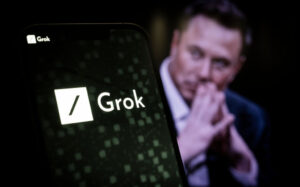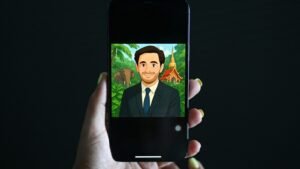Elon Musk Predicts Robots Will Surpass Top Human Surgeons Within Five Years

Elon Musk’s Vision for Robotic Surgeons
Elon Musk, the CEO of several prominent tech companies, has made bold claims about the future of healthcare, particularly regarding the integration of robotics in surgical procedures. According to Musk, he believes that robots will not only match the skills of proficient human surgeons but will surpass them significantly in just five years. This statement came in response to reports about Medtronic, a medical technology company, utilizing robots in over 130 surgical procedures designed to repair prostates, kidneys, and bladders.
The Role of Robotics in Surgery
Musk pointed out that advanced robotic systems are already playing a crucial role in surgeries. He mentioned his company Neuralink, which uses a robot for inserting brain-computer electrodes, emphasizing that humans cannot achieve the level of speed and precision required for such intricate tasks. This highlights the potential for robots to take on more complicated medical roles, which could reshape the landscape of surgical operations.
Previous Statements on AI and Healthcare
This isn’t the first time Musk has suggested that artificial intelligence (AI) could replace human doctors in various aspects of healthcare. Earlier in the year, he stated that his AI chatbot Grok is capable of diagnosing medical conditions. However, it’s important to note that Musk’s assessments may sometimes lack factual accuracy. In response to a user query, Grok has clarified that while it can provide general health information, it is not designed to make accurate medical diagnoses.
AI Companies Promoting Healthcare Innovations
Musk’s ideas about AI in healthcare reflect a broader trend among tech giants aiming to revolutionize medical practices. Not just Musk, but other influential tech leaders are advocating for AI’s role in treating and diagnosing illnesses. For example, Demis Hassabis, the CEO of Google DeepMind, mentioned in a recent interview that AI could potentially cure many diseases within the next few years.
Healthcare Applications of AI
OpenAI, the organization behind ChatGPT, has shared anecdotes about how users have benefited from using their AI tool to address long-standing health issues. Additionally, Microsoft, a major supporter of OpenAI, has introduced new diagnostic technologies designed to detect rare diseases, with CEO Satya Nadella stating that these innovations could significantly enhance the quality of life for many individuals.
The Challenges of AI in Medicine
While the push for AI in healthcare presents numerous opportunities, tech entrepreneurs often overlook the challenges associated with such advancements. Current AI tools, particularly those based on large language models (LLMs), can sometimes produce unreliable or incorrect information—an issue known as “hallucination.” For instance, some of the newest models have been identified as having an even higher propensity for generating inaccurate responses.
Risks of Misdiagnosis
In the medical field, misdiagnosis can have severe consequences, potentially putting patients’ lives at risk. Unlike tasks such as writing or coding, where errors may have limited repercussions, incorrect medical assessments can lead to critical outcomes. Furthermore, the lack of clear regulations surrounding AI in healthcare adds to the complexity of addressing accountability when AI tools fail.
The Future of AI in Healthcare
In conclusion, while industrial leaders like Elon Musk advocate for the use of robotics and AI in medicine, the landscape is still evolving. The potential benefits are substantial, and the innovations being introduced have the capacity to enhance patient care. However, critical discussions regarding reliability, accountability, and ethical considerations must continue as we navigate this transformative phase in healthcare.






